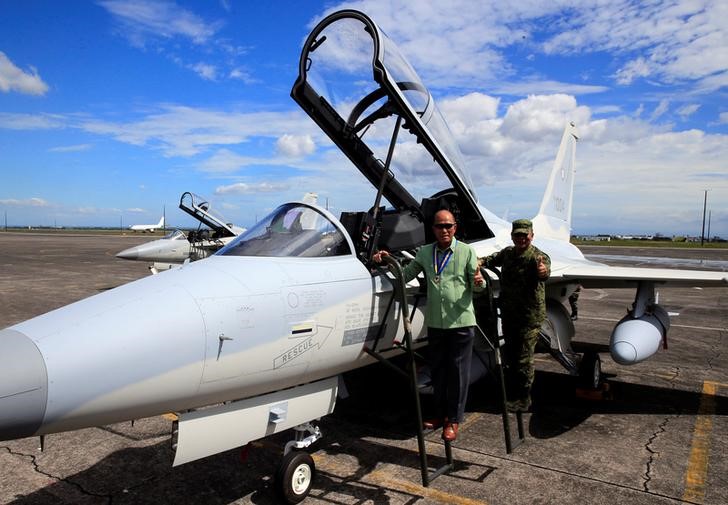MANILA (Reuters) - Peace talks between the Philippine government and communist rebels to end nearly five decades of conflict are still possible even though the president has ordered "all-out war", the defence minister said on Tuesday.
President Rodrigo Duterte announced on the weekend the government was scrapping a ceasefire with the New People's Army saying the "terrorist group" was making "huge", unacceptable demands despite government concessions.
Clashes have erupted in several places and some top rebels have been arrested but Defence Minister Delfin Lorenzana said talks were possible.
"The president has not actually closed the door to any negotiation," Lorenzana told a news conference.
"The government is still open to peace talks if it will benefit the Filipino people."
Duterte, who won an election last year on a vow to wipe out illegal drugs, had raised hopes of bringing an end to the communist insurgency that has stunted development for years, especially in central parts of the Philippines.
A ceasefire was declared in August and last month, the government asked the U.S. State Department to remove the rebel movement's Netherlands-based founder and leader, Jose Ma. Sison, from its terrorist blacklist to move negotiations forward.
But both sides later traded accusations of truce violations and negotiating in bad faith.
Lorenzana said orders had been issued for the arrest of guerrilla leaders temporarily freed last year to take part in the peace process.
Soldiers intercepted and re-arrested a senior rebel leader on Monday at an army checkpoint in Davao City.
Duterte said he had "walked the extra mile" to bring peace by resuming talks and freeing rebel leaders but his efforts were never reciprocated by the communists who took advantage of the talks to recruit fighters and extort money.
Lorenzana also said construction of U.S. military facilities in the Philippines would go ahead as planned after he had convinced Duterte, who is opposed to a U.S. presence in his country, that the installations were for humanitarian assistance and disaster response, to be used by both countries.

Duterte had accused the United States of stockpiling weapons at Philippine bases, in violation of an agreement. The United States denied doing so.